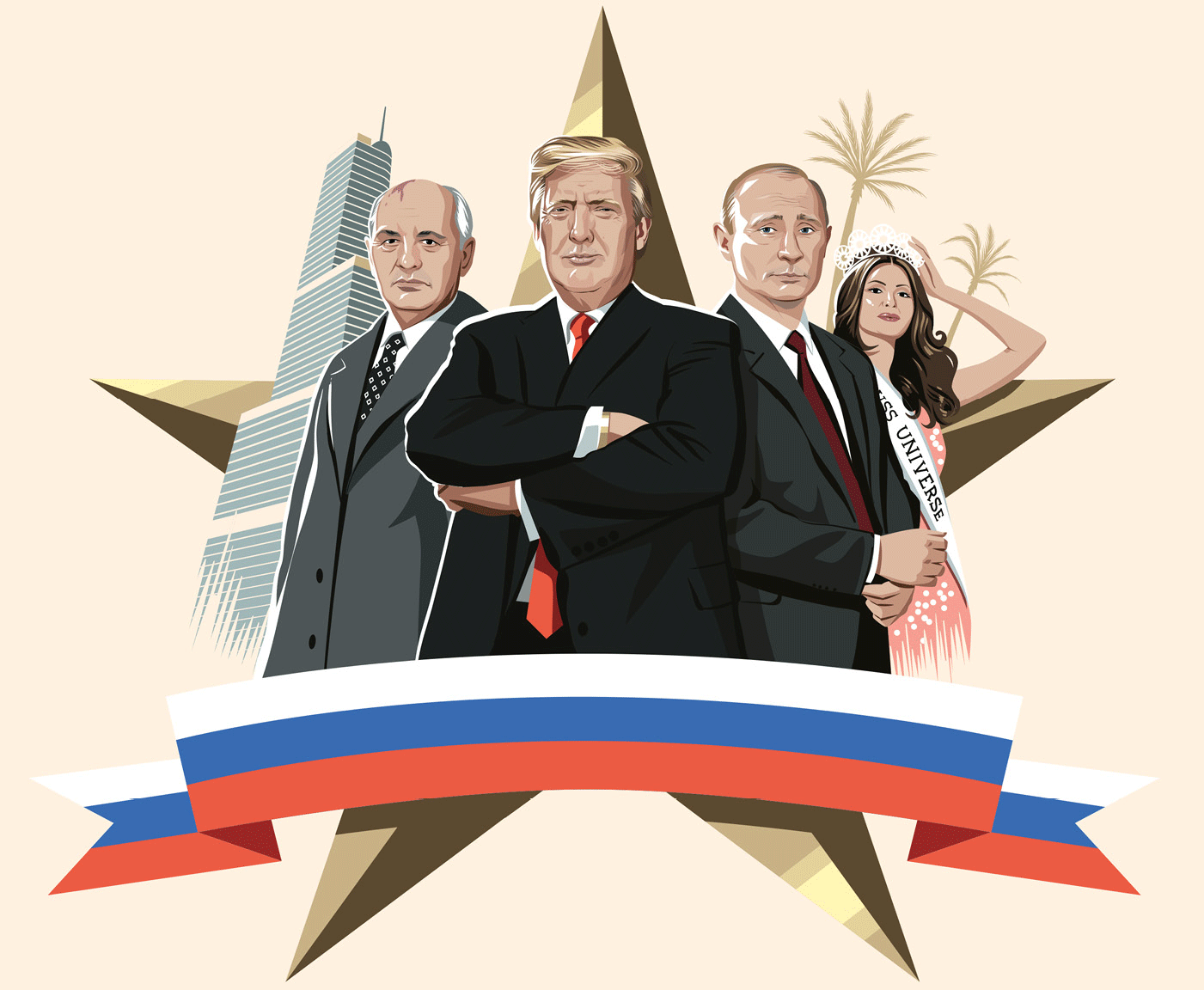
30 Years of Dangerous Liaisons between Moscow and “Comrade” Trump
It was in that year that the Soviet ambassador to the United States, Yuri Dubinin, met the go-getting Trump in New York, showering him with praise and inviting him to Moscow to discuss real estate projects. The Donald, already a controversial figure but one whose fame was on the rise, had suddenly become a target of the Soviet secret services, engaged then, as they are now, in developing a tight-knit network of relationships with personalities who, at the right time, could prove useful.
Trump flew to Moscow in July 1987, staying with his then-wife Ivana at the Lenin Suite of the National Hotel, clearly heavily bugged. Little is known by the Western world about the U.S. tycoon's first trip to the Soviet Union, but on his return to the U.S. The Donald appeared anxious to get into politics for the first time. Just two months after his stay in the Soviet Union, Trump spent almost $100,000 to buy entire pages of advertising space in national newspapers, publishing what he then considered to be his political manifesto.
From those advertising pages it is clear that one of the foundations of Trump's thinking in the '80s was attacking allies − the Japanese in particular at that time − for not spending enough on their own defense, leaving the U.S. to pick up the bill. "Why are these nations not paying the United States for the human lives and billions of dollars we are losing to protect their interests?" Trump wondered back in 1987.
Does that sound familiar? A few days ago, The Donald made similar accusations against NATO, with strong echoes of that first political manifesto of more than 30 years ago. We should remember that one of the pillars of Soviet foreign policy at the time, and also of Russia today, was to divide the United States from its allies. Was the future U.S. president, in search of billion-dollar deals in Moscow, exploited?
One thing that is certain is that the Kremlin never forgot its friend Donald, even when his own compatriots turned their backs on him. An example of this took place in 2003, when U.S. banks refused to lend money to Trump, then in serious financial difficulties. His "Russian friends" appeared on the scene to save him, making 86 purchases of the tycoon’s various properties, paying a total of $109 million in cash (flying in the face of anti-money laundering regulations).
It didn't stop there. In 2010, the private wealth division of Deutsche Bank lent Trump hundreds of millions of dollars, right at the same time that the German bank, as proven by various investigations, was recycling billions of dollars of dirty money from Russia. Just a coincidence?
This was around the time that The Donald flew to Canada to lay the first stone of a $500 million skyscraper, the Trump International Hotel and Tower Toronto, built thanks to the capital put up by his Russian-born Canadian associate Alex Shnaider. Something of a character, Schnaider's "fortune had its origins in the collision of communism, capitalism and the KGB at the fall of the Soviet empire," as the Financial Times put it after a 10-month investigation. Its investigation shows how "the venture connects the U.S. president with a shadowy post-Soviet world where politics and personal enrichment merge."
But the Toronto skyscraper is just the tip of the iceberg when it comes to the intertwined relationship between Trump and Moscow. As Eric Trump, the son of the future president, candidly admitted, "We don’t rely on American banks. We have all the funding we need out of Russia."
In short, when Trump returned to Moscow in July 2013 to attend a major event, the election of Miss Universe, he already had deep links to the former Soviet empire. This brief stay gave rise to the "pee tape" urban legend. As former FBI Director James Comey explains in his book, The Donald was obsessed in the years that followed with rumors suggesting that he paid prostitutes to urinate on a bed where Barack Obama had slept and, above all, that the performance had been filmed by the always-alert Russian secret services. The "pee tape" story has of course never been confirmed but occasionally bubbles to the surface to give Trump sleepless nights.
What is certain is that on June 16, 2015, when the unconventional tycoon announced he was running in the presidential primary elections, the Kremlin raised a glass in celebration. For the first time in decades there was hope that a friend of Russia, one far more malleable than not only the Obama-Hillary duo but also Mitt Romney, Obama's former Republican challenger, who called Moscow "our number one geopolitical foe," could end up in the White House. Comrade Trump: the same American friend that in the election campaign was already proclaiming – both on air and through his tweets - the strength and vision of Putin. Moscow had to help him in his fight to reach the White House. At any cost.

